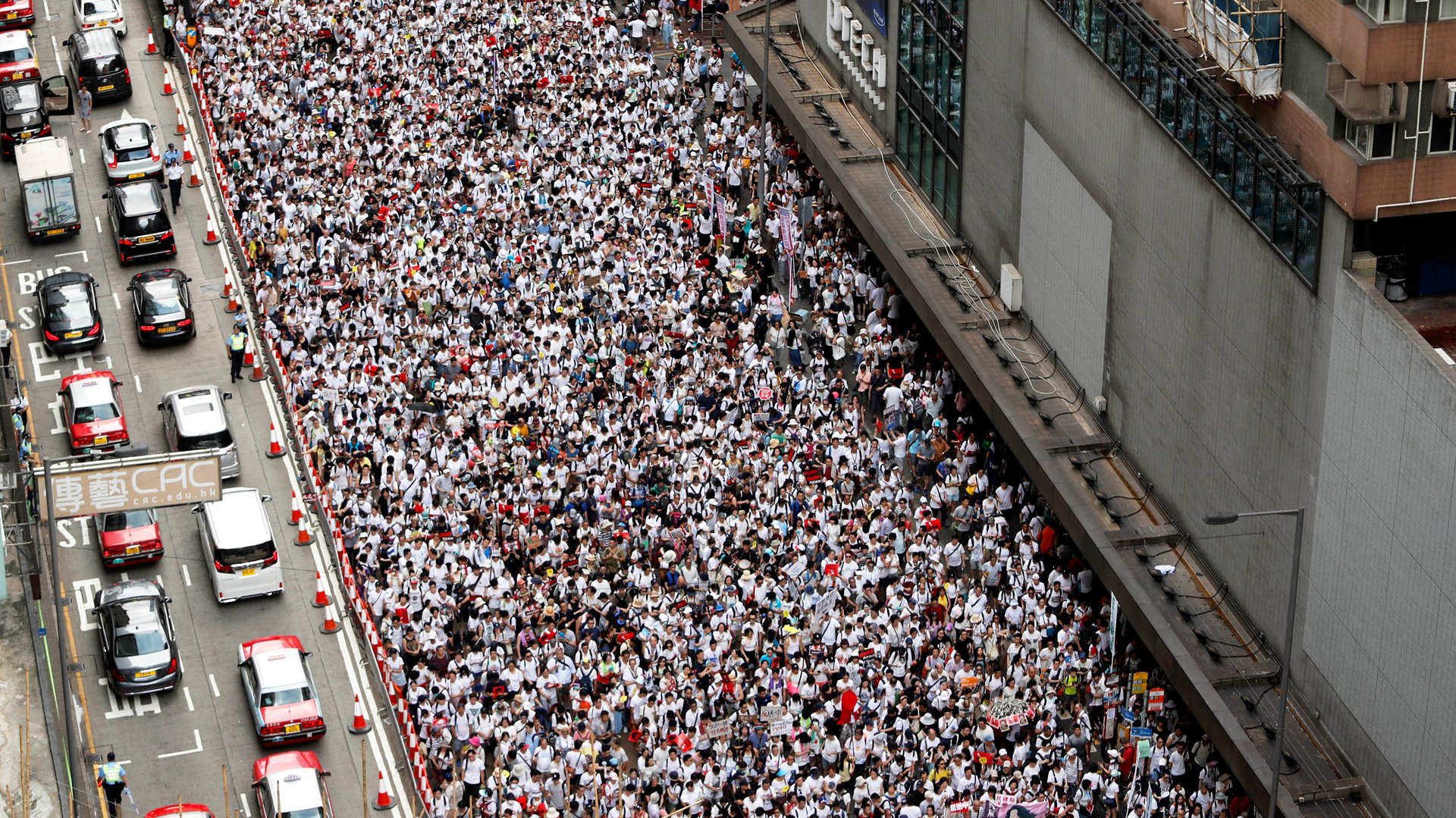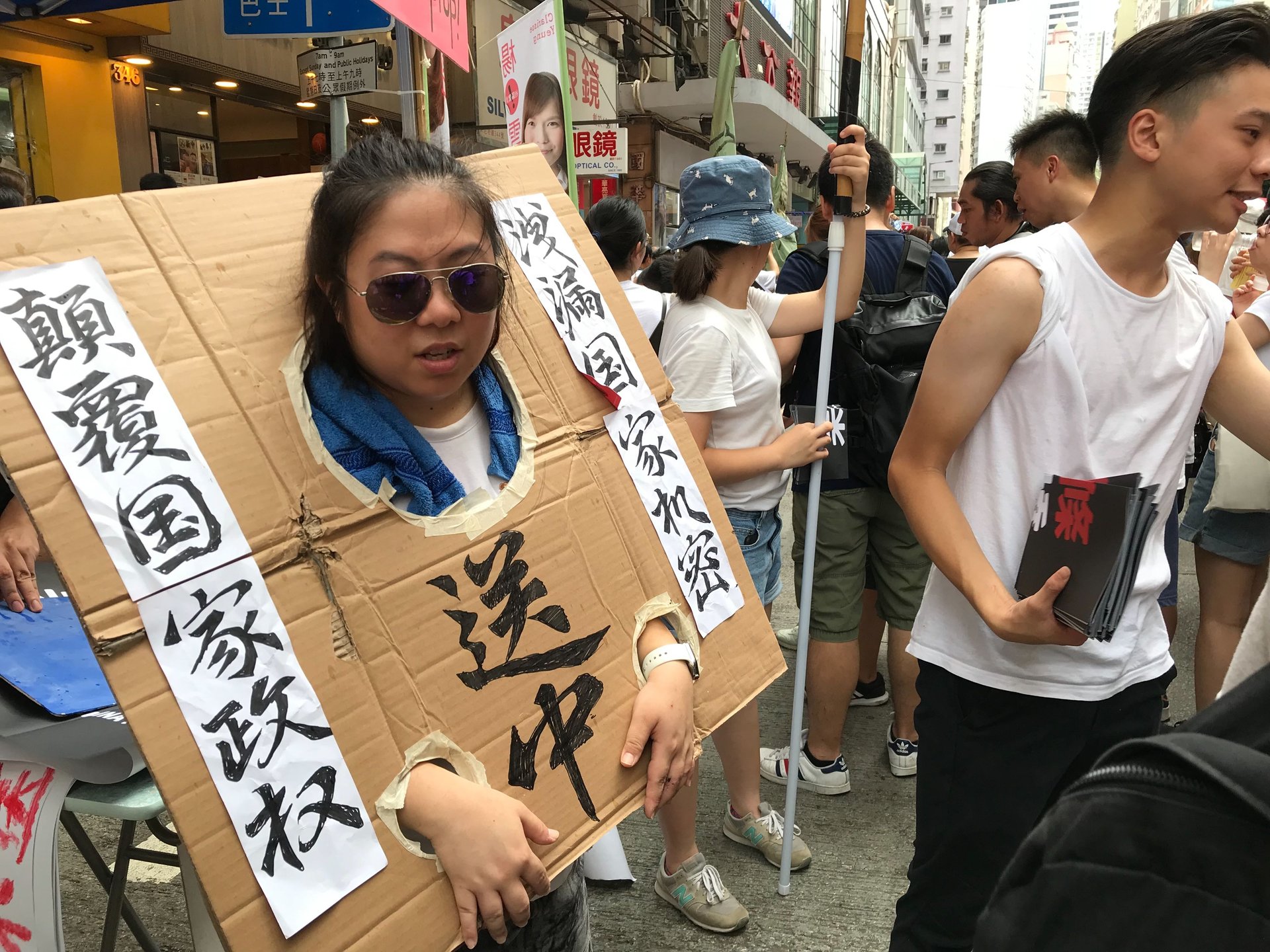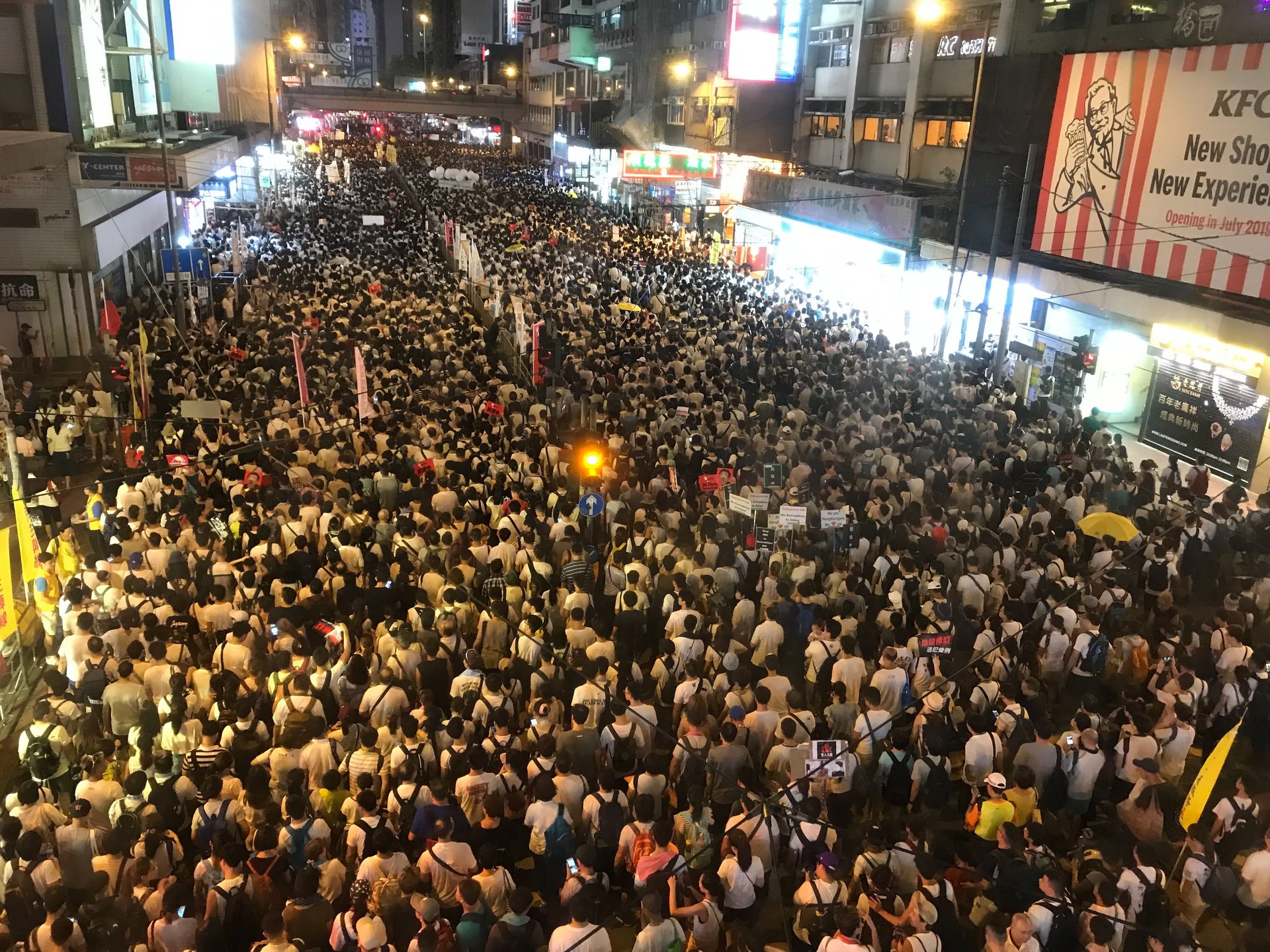Photos: Hong Kong has got its protest mojo back
In the years since Hong Kong’s pro-democracy street protests of 2014, some have wondered whether “protest fatigue” had set in. On Sunday (June 9), though, Hong Kong appeared far from fatigued: its citizens packed the streets on a hot and muggy day in numbers that organizers said easily surpassed a record protest in 2003.


In the years since Hong Kong’s pro-democracy street protests of 2014, some have wondered whether “protest fatigue” had set in. On Sunday (June 9), though, Hong Kong appeared far from fatigued: its citizens packed the streets on a hot and muggy day in numbers that organizers said easily surpassed a record protest in 2003.
Organizers with the Civil Human Rights Front said over 1 million people participated in the march, while police estimated just 240,000, according to the South China Morning Post. For the most part peaceful, a group of protestors and police were in a tense, occasionally violent, confrontation following the end of the march, which lasted more than seven hours.
The rally kicked off in the early afternoon as marchers gathered in central Hong Kong to walk to the local government headquarters in the city’s Admiralty area. Elderly Hong Kongers and younger ones with children in strollers were among the demonstrators calling upon lawmakers to scrap the city’s proposed overhaul of its extradition law—which would make it possible to send people to face trial in mainland China for the first time. While extradition is only supposed to be allowed for specified matters that are also crimes in Hong Kong, many fear the passage of the law, which is set to be voted on in the coming week, would further curtail free speech and protest in the city.

“If it passes, I’m done for,” said Natalie Fine, a 39-year-old event organizer who often brings artists to Hong Kong, and also ghost-writes opinion pieces and pens book reviews. She worries that anything she says or writes, or that her event guests say, could land her in legal trouble. “I’ll leave Hong Kong for sure [if it passes]… I’ll take my family with me.”
The protest comes amid broader concerns about China’s adherence to the “one country, two systems” principle under which the city has a certain amount of autonomy, and greater freedoms than in the mainland. The disappearance of a number of Hong Kong booksellers in 2015—they later turned up in the mainland in the control of Chinese authorities—and local prosecutions of pro-democracy protesters have exacerbated these fears.
Street traffic was diverted and police officers dotted the route to make sure marchers didn’t deviate from the official circuit. At some points crowds were so dense, people were unable to exit subway stations, and those who were above ground were at a standstill.
Photos taken from walkways and upper floors of skyscrapers showed people packed together in streets as far as the eye could see.
Despite police crowd control tactics that kept marchers at a standstill at many points, Hong Kong was its usual disciplined self. At one point, after being penned in one spot for a long time, protesters peacefully took over the other side of the street.
Organizers had originally predicted a turnout of half a million in recent days, which would have matched a 2003 protest against a proposed security law. Exhortations to attend the march came from all quarters of Hong Kong—including one civic-minded porn site.

Wilson, a young professional who was among the first waves of marchers to reach government headquarters around 4pm local time, said he felt it was vital to come out and march today.
“It may be the last time we can come to march after this bad policy is established,” he said. “You may be afraid of being prosecuted by China for coming here and saying your opinion.”
Update, June 9: This story was updated on the day of publication with estimates of turnout and information about a confrontation between police and some protesters.